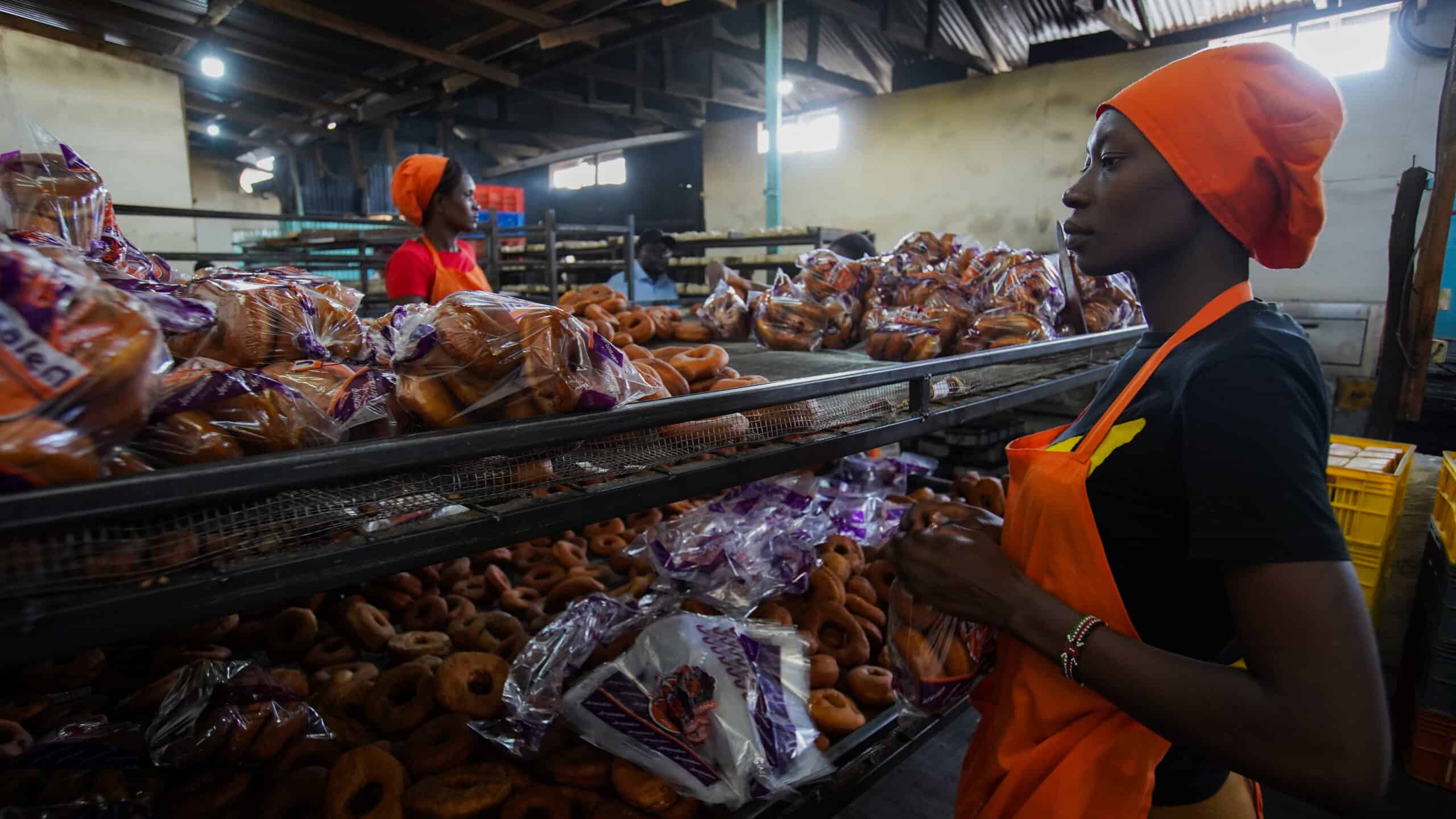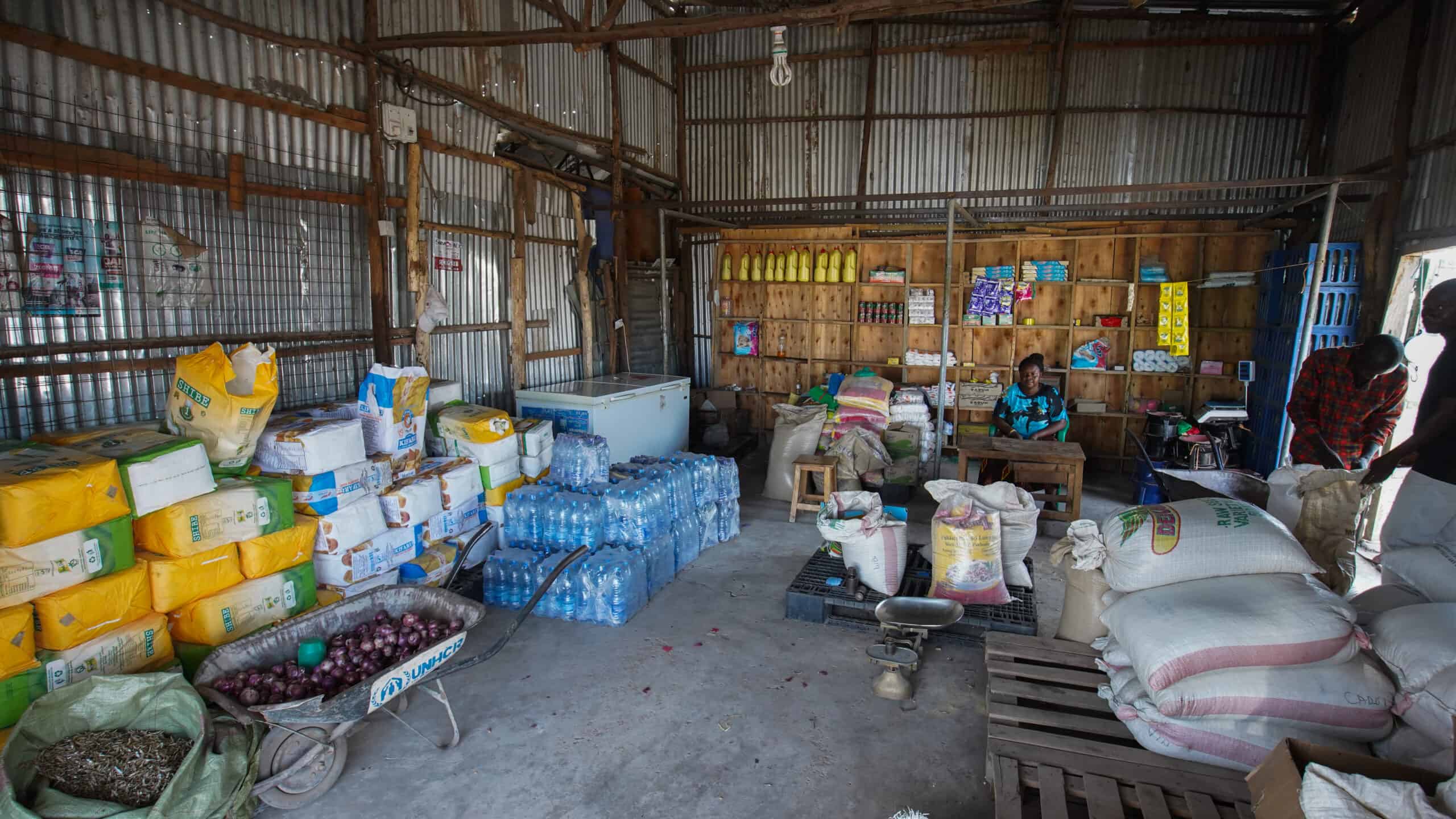
Target Groups
KKCF is expected to create direct and/or indirect benefits for the following groups;
- Private sector companies and social enterprises will access direct funding for their activities in Kakuma and Kalobeyei.
- Refugees and host community entrepreneurs will access technical assistance support and business development services. Selected businesses will be provided with capital to expand and scale up their businesses. Women and youth entrepreneurs will be able to start and /or grow their enterprises and create additional income to support their children through education, buying clothing, and accessing medical services.
- Refugees and host communities will be employed by social enterprises and private sector companies. They will offer both skilled and unskilled labor and earn wages and salary compensation. In the longer term, scaling local businesses will also provide employment opportunities to local communities.
- Turkana entrepreneurs will access technical assistance support and business development services. Selected businesses will be provided with capital to expand and scale up their businesses. Women and youth entrepreneurs will be able to start and /or grow their enterprises and create additional income to support their children through education, buying clothing, and accessing medical services.
- Turkana population at large will access a variety of products and services at affordable prices due to increased competition in the Kakuma and Kalobeyei markets. Entry of many businesses in the market provides customers with a variety of products to choose from and bargain for affordable pricing.

Priority Sectors
KKCF will address the following development challenges in the Kakuma and Kalobeyei areas:
Access to capital
About 95% of people surveyed in the camp and 99% in the town said “lack of adequate capital” prevents them from opening their own businesses. Although a credit market exists, it is largely informal. Only one-quarter of respondents took out a loan over the last 12 months. While there are two banks providing financial services in Kakuma, only one provides commercial loans to refugees and does so on a limited basis.
Access to Clean Energy
Lack of access to reliable, affordable energy is a major issue and many refugees and members of the host community said they were willing to invest in improved energy services: 28% of households indicated their readiness to bear the full costs of a mini-grid, while 17% said they would pay for a $126 solar home system.
Water and Sanitation
With only two permanent rivers in Turkana County, water is a precious resource. The discovery of an aquifer in 2013 – albeit one too saline for human consumption – could help change things. Intertwined with water is sanitation, with only 39% of refugees having access to latrines.
Childcare services
About 94% of refugee secondary school-aged children are out of school, along with 91% of host community children of the same age, with the lack of space in area schools being one constraining factor for both. Still, the two communities spend $8.6 million USD a year on education.
Agriculture
Kakuma camp, Kalobeyei settlement, and Kakuma town have a growing population of 550,000 residents. Food security is a key concern for this region, whose arable land can only be reliably productive under irrigation sourced from boreholes. Because boreholes are expensive to sink, could be far from the arable land, and setting up an irrigation infrastructure is expensive. KKCF supports enterprises providing innovative agribusiness solutions that would lead to quality food supplies and cost savings.
Cold Storage Facility
Perishable commodities have a very short shelf life within the semi-arid area, with temperatures ranging from 30 degrees to 40 degrees Celsius at night and day, respectively. Horticulture commodities, livestock produce, and medicine are some products that require cold storage. Many of these products are sourced hundreds of kilometres from the region and in small quantities, just enough to meet immediate demand, raising the prices and compromising the quality of these products. Cold storage facilities ranging from chilling box freezers to bulk cold storage facilities that tap into renewable energy to mitigate power blackouts and cut down power generation costs are ideal for the region.
KKCF is envisaged to create direct and/or indirect benefits to the following groups;
- Private sector companies and social enterprises will access direct funding for their activities in Kakuma and Kalobeyei.
- Refugees and host community entrepreneurs will access technical assistance support and business development services. Selected businesses will be provided with capital to expand and scale up their businesses. Women and youth entrepreneurs will be able to start and /or grow their enterprises, create additional income to support their children through education, buying clothing and access medical services.
- Refugees and host communities will be employed by the social enterprises and private sectors companies. They will offer both skilled and unskilled labour and earn wages and salary compensation. In the longer term, scaling local businesses will also provide employment opportunities to local communities.
- Customers – both refugees and host communities will access a variety of products and services at affordable prices due to increased competition in the Kakuma and Kalobeyei markets. Entry of many businesses in the market provides customers with a variety of products to choose from and bargain for affordable pricing.
- Refugees and host communities will increasingly access medical services and reproductive health solutions.
In the longer term, KKCF will help achieve mutual growth and development of refugees and host communities, through continued interaction of refugees and host communities at markets
and social amenities. A balanced support to refugees and host communities will create improved power relationships leading to social cohesion.
Finally, with the growth of formal businesses, entry of private sector companies and social enterprises, the County Government of Turkana will begin to realize additional revenues from
business levies. It is worth noting that this benefit can only be sustained, with improved business environment – in terms of policies and regulations.
This new challenge fund has been designed to inspire and motivate businesses, social enterprises, and local entrepreneurs to propose competitive and sustainable solutions to some of the challenges people face living in the Kakuma and Kalobeyei areas. By providing seed capital for companies with strong potential for growth, the Fund helps to de-risk the business concept, attract commercial funders, and put the company on a sustainable growth trajectory. This is good for the local communities who increase their access to basic services, have greater choice and more affordable products, and access to new jobs and livelihoods.
KKCF will address the following development challenges in the Kakuma and Kalobeyei areas:
Access to capital
95% of people surveyed in the camp and 99% in the town said “lack of adequate capital” prevents them from opening their own businesses. Although a credit market exists, it is largely informal. Only one-quarter of respondents took out a loan over the last 12 months. While there are two banks providing financial services in Kakuma, only one provides commercial loans to refugees and does so on a limited basis.
Access to Clean Energy
Lack of access to reliable, affordable energy is a major issue and many refugees and members of the host community said they were willing to invest in improved energy services: 28% of households indicated their readiness to bear the full costs of a mini-grid, while 17% said they would pay for a $126 solar home system.
Water and Sanitation
With only two permanent rivers in Turkana County, water is a precious resource. The discovery of an aquifer in 2013 – albeit one too saline for human consumption – could help change things. Intertwined with water is sanitation, with only 39% of refugees having access to latrines.
Livestock
Livestock is the main source of livelihood for the host community. Despite high levels of meat consumption, prices are relatively low. Developing the livestock value chain to ensure pastoralists are organized and have access to the necessary inputs, services, external markets, and finance could support the host community.
Childcare services
About 94% of refugee secondary school-aged children are out of school, along with 91% of host community children of the same age, with the lack of space in area schools being one constraining factor for both. Still, the two communities spend $8.6 million USD a year on education.